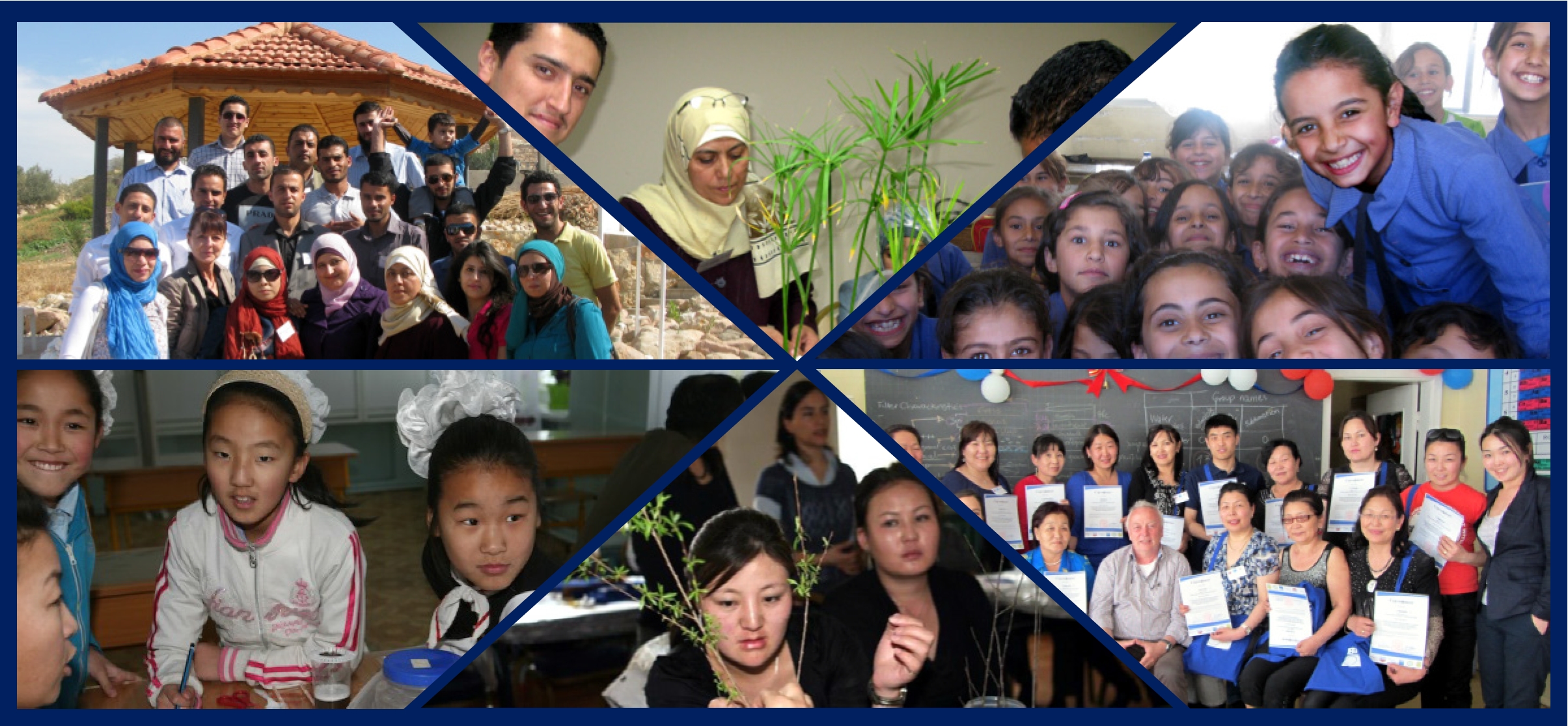
Capacity Development in IWRM
… exchanging experiences, improving existing skills, strengthening problem solving abilities, and generating sustainable knowledge for decentralized wastewater treatment & reuse.
The lack of adequate sanitation for about 2.5 billion individuals worldwide is a global concern and one of the priorities for the fulfilment of the United Nations Millennium Development Goals (MDGs), which set targets inter alia for poverty reduction, improvements in health education and environmental protection.
Water availability and water quality represents a key factor for the achievement of these MDGs. Consequently, the environmental compromise proposed by the water-related key target of the MDGs is expected to halve the proportion of people without sustainable access to safe drinking water and adequate sanitation by 2015.
These challenges call for an increase in the development of human capacity to appropriate implementation and adequate management systems for wastewater treatment & reuse particularly in regions where improper water supply and sanitation are key contributing factors to environmental degradation, poor public health and economic stability.
Capacity Development (CD) plays a key role in target/ problem–oriented research and the sustainable implementation of research results. Accompanying targeted, customized CD measures ensure that:
- local authorities and stakeholders receive all needed information, knowhow and training for decision making processes with regard to the meaningful deployment of the developed technologies and management tools.
- local capacity increases receiving further trainings in operation and maintenance of facilities or further training on academic level with regard to sustainability beyond project ends.
- local population is properly taken into account to enhance public awareness and change behaviour with a view to future essential skills and abilities.
Together with our partner, the Training and Demonstration Centre for Decentralized Sewage Treatment – BDZ e.V., we develop, implement and evaluate CD programmes such as the following:
The SMART (http://www.iwrm-smart2.org/) and MOMO (http://www.iwrm-momo.de/) IWRM projects aim to develop transferable approaches for the integrated management of existing water resources, in order to increase available water resources and improve water quality. To address this issue CD programmes were developed and carried out like PhD and Master Cooperation programmes as well as further education programmes for professionals from the water resources and management sector.
Furthermore, a “tailor-made” programme in the field of Decentralized Wastewater Treatment and Reuse (DWWT&R) was developed and applied as a so far extracurricular teaching unit for Primary Schools in Jordan and Palestine. This teaching unit has been adapted and applied to another IWRM project running in Mongolia.
The CD programme “Water Fun – hands, minds and hearts on Water for Life!” (http://www.waterfunforlife.de) provides student friendly media and materials, is strictly oriented in students’ experiences, previous knowledge and existing skills by using innovative, proven teaching techniques and learning methods. It encourages students (5th/ 6th grade) reflection about water as a valuable resource, the impact of water consumption and wastewater components, gives them the opportunity to conduct experiments in water/ wastewater analysis and to build wastewater filters and, in a reduced scale, eco-technologies for DWWT&R. The eco-technologies models for each country are selected in line with the pilot treatment plants built in the frame of the projects (constructed wetlands with integrated irrigation possibilities in Jordan & Palestine and willows based treatment systems with integrated wood production in Mongolia).
The programme was conducted during 2011 and 2012 for 54 Primary school teachers in Jordan, 64 in Palestine and 10 in Mongolia covering a total of 128 schools or nearly 4500 students.
The programme increases the participants’ awareness of the need for wastewater treatment and the potential of adequate re-use systems and helps students to understand wastewater as a valuable resource, especially in regions with water shortages.
Contact
Ruth Goedert
Tel.: 0341 235 1024
Fax: 0341 235 1830
Training and Demonstration Centre for Decentralized Sewage Treatment – BDZ e.V.
